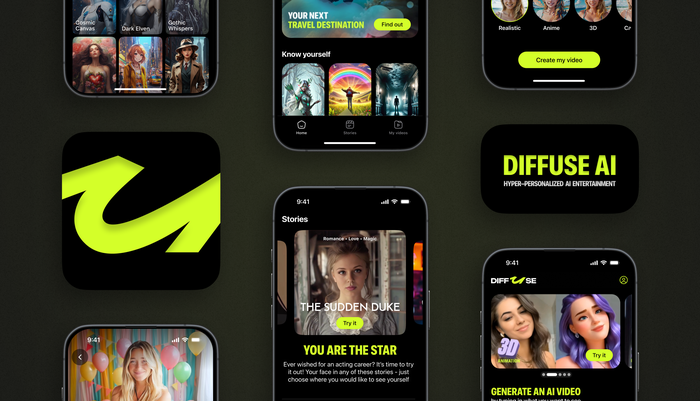Setting sales: How Royal Caribbean navigated back from COVID with data-driven marketing

Chad Grospe
Associate Vice President, International Marketing, Royal Caribbean International
Paul Suskey
President & Managing Partner, Direcly
The journey back from the depths of the COVID-19 pandemic has for most businesses been long and swift, frantic and focused, strategic and tragic. Yet few have seen the ups and downs of the travel industry, and cruises in particular, which went from total shutdown to record bookings in a matter of months, all while steering through new regulations and fresh outbreaks. In this story, we hear from Chad Grospe and Paul Suskey about how they reimagined Royal Caribbean's marketing on a new cloud platform to make the most of these historic moments and plan for smoother sailing in the future.
There's a pretty strong case to be made that cruise lines were the hardest hit industry when the COVID-19 pandemic began. Travel decreased significantly and Royal Caribbean's business came to a halt as customers went into quarantine. In 2020, we put all our cruises and marketing investments on hold — we knew that we weren’t going to have the resources that we were typically used to.
To sustain the business through these challenging times, we had to become more efficient across the board. That’s when our marketing team looked for ways to remodel our marketing and analytics data to respond to the sea change we knew was on the horizon, both for business operations and customer expectations.
Vaccine data, local lockdowns, and sudden increases in COVID-19 cases were some of the new considerations we had to take into account when allocating marketing dollars to maximize our return on investments.
It was a critical moment, demanding smart decisions tailored to the real-time conditions of the world. That meant removing blockers between us and our data to help the company using analytics. We knew the cloud would be an important tool in this new world to respond to rapidly shifting dynamics and reach our customers at the right time and place.

Navigating dynamic market conditions with marketing data and analytics
Previously, we lacked a centralized measurement tool for our marketing strategy and used different demand-side platforms. Our goal was to unify everything in a single platform, to better activate and measure our digital advertising performance while adapting to dynamic market conditions.
To that end, we worked with Direcly and started by implementing Google Marketing Platform at Royal Caribbean Mexico to fix a fragmented marketing ecosystem.
The results were a game changer. Using Display & Video 360, part of the Google Marketing Platform, we gained control of our campaigns with an updated view of what’s changing in real-time. This helped us to effectively reassess our media plans and deliver more relevant digital experiences more quickly and accurately.


After all, typical media plans aren’t necessarily appropriate at all times, particularly against the backdrop of a global pandemic. We needed an agile marketing stack, and the results of implementing one in Mexico were a three-fold increase in site conversion compared to pre-2019.
Seeing this success, 19 other Royal Caribbean international offices subsequently deployed the same strategy and now leverage Google Marketing Platform. Each is using the platform in unique ways with the same goal: to unlock data that we can use to build better segmentation and be smarter about marketing.
Empowering smarter and more agile marketing decisions
The next natural step was to think about this strategy from a global perspective.
To optimize decisions during the pandemic and beyond, we aimed to unify our business and marketing data internationally with support from Direcly. We believed a centralized, cloud-based data warehouse powered by AI would be key to connecting information across markets and acting on it quickly to drive our decision making across the international marketing team.
We selected BigQuery as our new cloud data warehouse and began unifying our global data there. This helped us to better visualize our needs and inspire actions that can have a greater impact on media investment internationally. We brought in new datasets that were now important for marketing decisions, such as data from governments on COVID-19, which in turn gave the marketing team a new way of understanding customers’ needs.
Together, this allowed us to be more agile in deciding where best to allocate marketing budgets and resources.
New datasets were now important for marketing decisions, such as data from governments on COVID-19, which in turn gave the marketing team a new way of understanding customers’ needs.
One of the exciting aspects of moving business to the cloud is the way you can layer more and more data and systems together for amplified impact.
Next, we brought together data from sources including Google Ads, Search Ads 360, Display & Video 360, Facebook, and other marketing and analytics platforms. As the network effect grew, it informed and accelerated better marketing decisions based on what was working, and what should change, in terms of marketing strategy.
Cutting analytics cycles from weeks to minutes
To make this possible, Direcly tapped into its proprietary APIs and built custom pipelines for Royal Caribbean to ingest its global data from different sources, which is processed and stored into BigQuery. The aggregated data is then transformed and sent to an analytics dashboards built on Looker.
Previously, the marketing team had to request data from a platform, and wait for an agency to interpret it, to see how their strategy was performing. Now, with the Looker platform at their fingertips, business users and marketing analysts can easily access most metrics. They can then monitor the dashboards and perform ad-hoc analysis to answer their own questions about performance and what actions to take next.


These dashboards have given non-technical users the autonomy to respond to business changes and to surface insights more quickly and easily. Especially during the pandemic, responding to COVID-19 travel alerts and catching issues in real-time became an essential feature so they could take measures to fix problems faster.
Reports that used to take up to two weeks now take less than five minutes to process, and marketing teams are using this data to serve the most relevant and helpful content to the right customers, at the right time. As a result, we’ve seen our return on ad spend increase by 30% year-on-year since 2020. Costs per booking went down by 20% as costs per click decreased by 34%.
A complete picture of what’s happening around the world
We aim to continue leveraging and expanding our data capabilities to understand and better serve customers not just online, but also aboard our cruises. We’re working on continually integrating more data sources to gain a complete picture of everything that is happening across the business — going beyond our marketing strategies — all over the world.
The cloud will be imperative in helping us move ahead as a global company, not least because it helped us transform and dramatically increase our direct-to-consumer business. Our cloud investments are now driving the world’s largest cruise lines’ return to service not just in one market, but around the globe.



